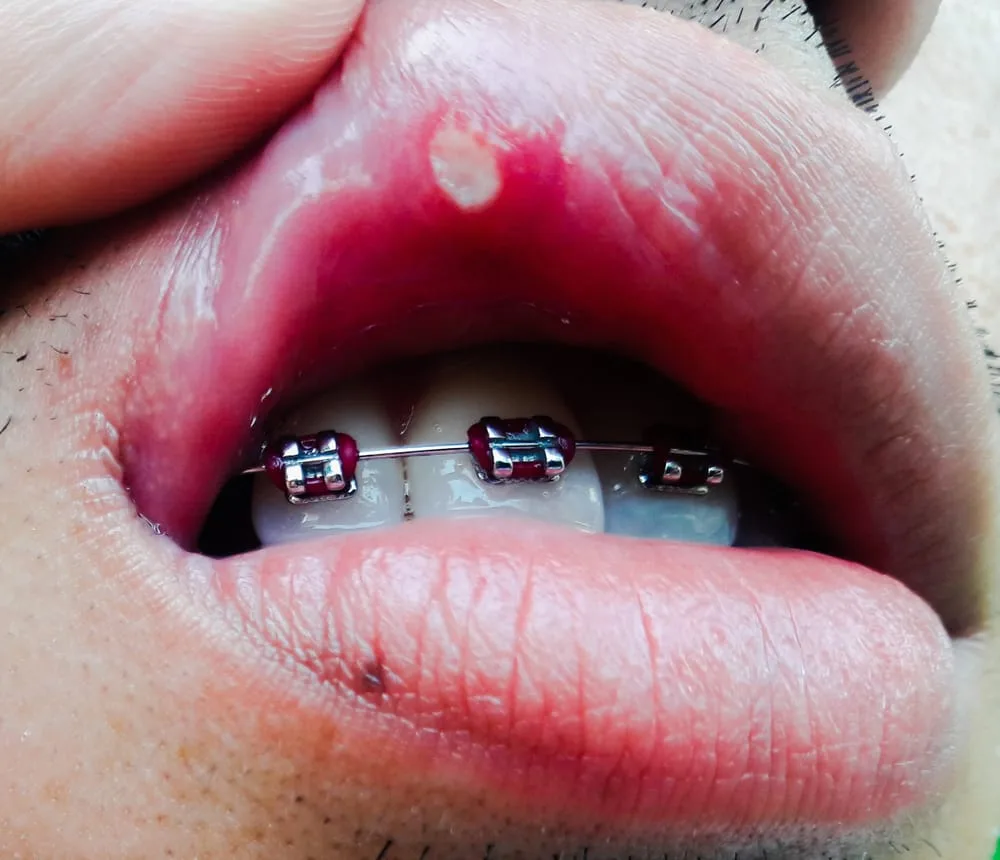 If you have ever had a canker sore, you would likely agree that they can be painful and annoying. Your dentist won’t likely need to run tests as most canker sores can be identified by their physical appearance and symptoms. These sores typically have a red circular or oval border that surrounds a yellow or whitish center. Canker sores may include inflammation and irritation symptoms, such as painful burning and stinging.
If you have ever had a canker sore, you would likely agree that they can be painful and annoying. Your dentist won’t likely need to run tests as most canker sores can be identified by their physical appearance and symptoms. These sores typically have a red circular or oval border that surrounds a yellow or whitish center. Canker sores may include inflammation and irritation symptoms, such as painful burning and stinging.
This article will go into more details on the life of canker sores. Understanding a few things about canker sores may help you to avoid them in the future or if you do get a canker sore, perhaps you will be able to shorten the annoying symptoms that come with them.
What Causes Canker Sores
It may surprise you as to what causes canker sores as they can be caused by many different types of things. For some people, it seems to be a genetic factor. Canker sores seem to affect many people in their family. For others, there can be environmental or other factors. For some people, they seem to have both factors working against them.
Sometimes it can be difficult to pinpoint what is contributing to your canker sores. However, having a list of things that may be contributors might be helpful in narrowing down possibilities. Studies have shown that canker sores may be triggered by these things:
- Emotional stress
- Dietary deficiencies (such as b-vitamin deficiency)
- Hormonal changes (menstrual periods)
- Food allergies
- Acidic foods (strawberries, orange juice, etc.)
- Trauma in the mouth (such as a cheek bite)
How To Heal A Canker Sore
Most minor canker sores will heal on their own in 10-14 days. In the meantime, you might want to try some over-the-counter topical aids to help reduce the pain and inflammation.
It is possible that you might experience a major canker sore. Major canker sores are usually bigger and deeper and they take 6 or more weeks to heal. This can be even more troublesome and annoying for you. If you experience a major canker sore, here are some treatment options that you might want to ask your dentist about:
- Mouth rinse (dexamethasone) -this may help reduce inflammation and pain.
- Medications such as Carafate
- Oral steroids for severe cases
- Cauterize canker sores with Debacterol or silver nitrate
Medications are known for having side effects and canker sore meds are no different. It is important to discuss side effects with your dentist or doctor to help determine if they are worth taking.
I Have Heard That Putting Salt On Canker Sore Will Help, Does It?
We don’t recommend putting salt directly on canker sore as this will burn like crazy. Diluting salt with water and swishing it gently and then spitting it out may help to reduce inflammation of the canker sore. Also, salt will help to reduce acid levels in your mouth which can help to reduce bacteria and lead to faster healing. Again, we recommend swishing salt water for this effect rather than directly apply salt to your canker sore.
We know how annoying canker sores can be and empathize with our patients who struggle with them. Hopefully this article gave you some ideas and insight to hopefully eliminate canker sores in the future. If you are someone who gets canker sores routinely, please don’t hesitate to reach out. Our dental team can work with you to try to find a solution to keeping these sores at bay. Let us know what canker sore tips you found most helpful!



Leave a Reply